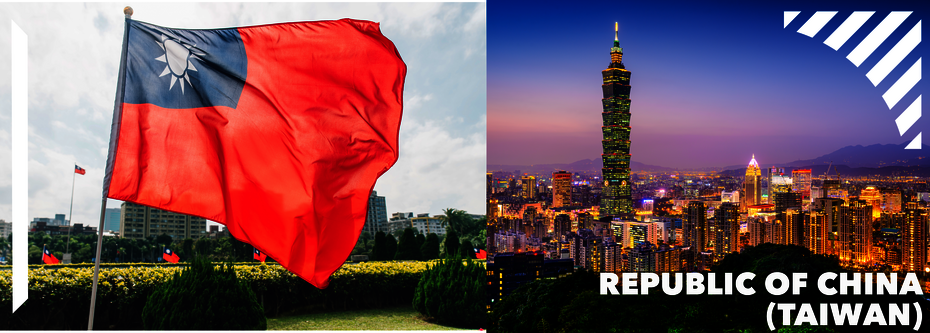Commitment to the well-being of the region.
The Republic of China (Taiwan) joined CABEI in 1992 and is one of the Bank's first non-regional members; its incorporation enabled the Bank to issue and place its first bonds on the international market. At the close of 2021, it is the non-regional member with the highest shareholding (11.4%) with a subscribed capital of USD776.3 million and contributions amounting to USD133.6 million.
In the coordination of development projects, the Republic of China (Taiwan) cooperation for the region focuses on key areas for poverty reduction, such as food security, education, agriculture, Micro, small and medium-sized enterprises, agribusiness, coffee producing sector affected by rust, export promotion and forestry and industrial development.
As a relevant fact, in 2020, thanks to the alliance with its non-regional partner country, CABEI made it's 19th issue in the Taiwan capital market, historically totaling US$ 2.3 billion.
In 2021, CABEI opened its representative office in the Republic of China (Taiwan) located at the Taipei 101 building.
In the Republic of China (Taiwan), CABEI showcases the region as an area of opportunities for innovation and sustainability
![[Translate to English:] [Translate to English:]](/fileadmin/_processed_/6/c/csm_WhatsApp_Image_2022-08-03_at_9.18.54_AM_3b87c1549f.jpeg)
At a forum held during the celebration of the 30th anniversary of the Asian nation's incorporation into the multilateral organization, the forum focused on targeting new investment niches to promote innovative businesses with greater added value in Central America and the Caribbean.
Taipei, August 3rd, 2022 - As part of the celebration of the 30th anniversary since the Republic of China (Taiwan) became the first extra-regional member of the Central American Bank for Economic Integration (CABEI), the "Innovation, Sustainability and Cooperation Forum" was held with the objective of strengthening new trade relations and exploring the benefits of investment and technology to improve the quality of life of Central Americans.
The event, which was divided into three days to address various topics, brought together representatives of government, companies, institutions and investors committed to the development and progress of the region.
CABEI's Executive President, Dr. Dante Mossi, commented: "We wish to learn from the Taiwanese experience, which has been committed to accelerating the industrial transformation towards new financing mechanisms that stimulate economic growth, employment, environmental protection and medium, small and micro enterprises.”
The forum began with the panel discussion "Prospects for Collaboration in Technological Transformation, Innovation and Digitalization between Taiwan and SICA Member Countries in Central America," with the participation of the head of CABEI's Regional Center for Innovation and Technology, Celia María Arguello; and the ambassadors of Guatemala and Honduras in this country, Willy Alberto Gómez and Harold Burgos, respectively.
The second panel was entitled "Experience in Financial and Technical Cooperation Responding to Climate Change, Gender Equality and Sustainable Rural Development," and was led by CABEI Green Funds project analyst Rubén Avila, United Cathay Bank Vice President Michael Wen and TaiwanICDF Secretary General Alex Shyy.
The forum was closed with the panel "Sustainable Rural Development and the Exploration of Innovation and Sustainability Investment and Cooperation Opportunities"; in which CABEI's Sovereign Public Sector Manager, Manuel Torres; the BOD Director of the Taiwan Transportation Intelligence Society (ITS), Dr. Wen-Jing Huang; and the manager of the Industrial Technology Research Institute (ITRI), Dr. Huei-Ru Tseng, interacted.





